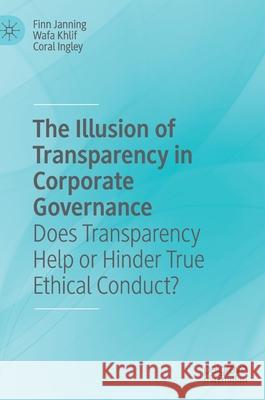The Illusion of Transparency in Corporate Governance: Does Transparency Help or Hinder True Ethical Conduct? » książka
topmenu
The Illusion of Transparency in Corporate Governance: Does Transparency Help or Hinder True Ethical Conduct?
ISBN-13: 9783030357795 / Angielski / Twarda / 2020 / 165 str.
The Illusion of Transparency in Corporate Governance: Does Transparency Help or Hinder True Ethical Conduct?
ISBN-13: 9783030357795 / Angielski / Twarda / 2020 / 165 str.
cena 402,53
(netto: 383,36 VAT: 5%)
Najniższa cena z 30 dni: 385,52
(netto: 383,36 VAT: 5%)
Najniższa cena z 30 dni: 385,52
Termin realizacji zamówienia:
ok. 22 dni roboczych.
ok. 22 dni roboczych.
Darmowa dostawa!
Kategorie:
Kategorie BISAC:
Wydawca:
Palgrave MacMillan
Język:
Angielski
ISBN-13:
9783030357795
Rok wydania:
2020
Wydanie:
2020
Ilość stron:
165
Waga:
0.36 kg
Wymiary:
21.01 x 14.81 x 1.12
Oprawa:
Twarda
Wolumenów:
01
Dodatkowe informacje:
Wydanie ilustrowane











